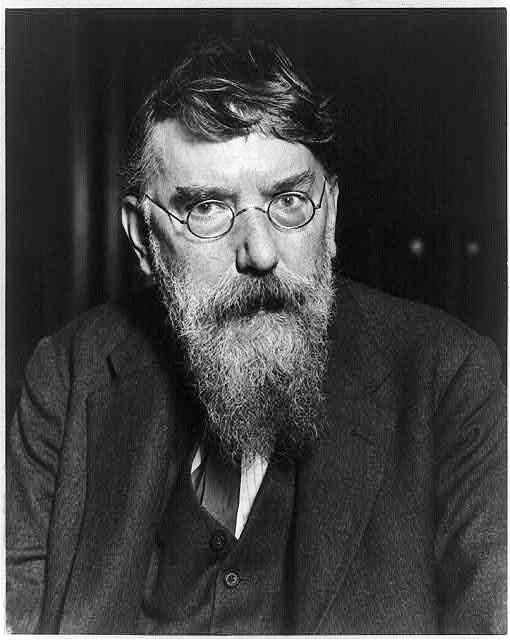Russell, Æ George William oldala, Angol életrajz
Életrajz
Russell, George [William] (pseudonym ‘Æ’ from Greek ‘Æon’) (1867-1935), poet, mystic, social reformer; born in Lurgan, Co. Armagh. The family moved to Dublin in 1878, and he was educated at Rathmines School and the Metropolitan School of Art, where he met W. B. Yeats. From 1884, when he began to experience waking visions, he became increasingly involved in spiritual research. His first collection of poetry, Homeward: Songs by the Way (1894), contained ethereal poems, intent on evoking spiritual and contemplative states. His other collections continued more or less in this vein, and include The Earth Breath and Other Poems (1897), The Divine Vision and Other Poems (1904), and Collected Poems (1913). In 1897 Russell joined Sir Horace Plunkett's Irish Agricultural Organization Society (IAOS), supervising the setting-up of co-operative banks in the west of Ireland. His version of Deirdre (1902), performed by the Abbey Theatre's precursor, had Constance Markievicz in the title-role. He edited The Irish Homestead, the journal of the IAOS, 1905-23, using its columns to encourage many young writers, including Padraic Colum, Seumas O'Sullivan, and Eva Gore-Booth. In ‘On Behalf of Some Irishmen Not Followers of Tradition’, he attacked the deployment of myth to enlist nationalist feelings, a poem fiercely criticized by Joseph Mary Plunkett in 1913. In that year he supported the Dublin Strikers during the Lock-out [see James Larkin]. The outbreak of the First World War seemed to confirm man's severance from the sources of wisdom, and Gods of War, With Other Poems (1915) challenges the prevailing war fever. The National Being (1916) presents a synthesis of his ideas on non-militant nationalism, spiritual concerns, and idealistic principles. Other prose works include The Candle of Vision (1918), a collection of essays describing his inner life. Two novels, The Interpreters (1922) and The Avatars (1933), outline his spiritual message. In 1922 he became editor of The Irish Statesman, which incorporated The Irish Homestead, and continued in that role until 1930. He went on writing poems and prose, publishing collections such as Enchantment and Other Poems (1930) and The House of the Titans and Other Poems (1934). The prose work, Song and Its Fountains (1932), continues the enquiry begun in The Candle of Vision. Escaping from a ‘nation run by louts’ he went to live in England after 1933, first in London and then in Bournemouth.
(Az oldal szerkesztője: P. T.)



